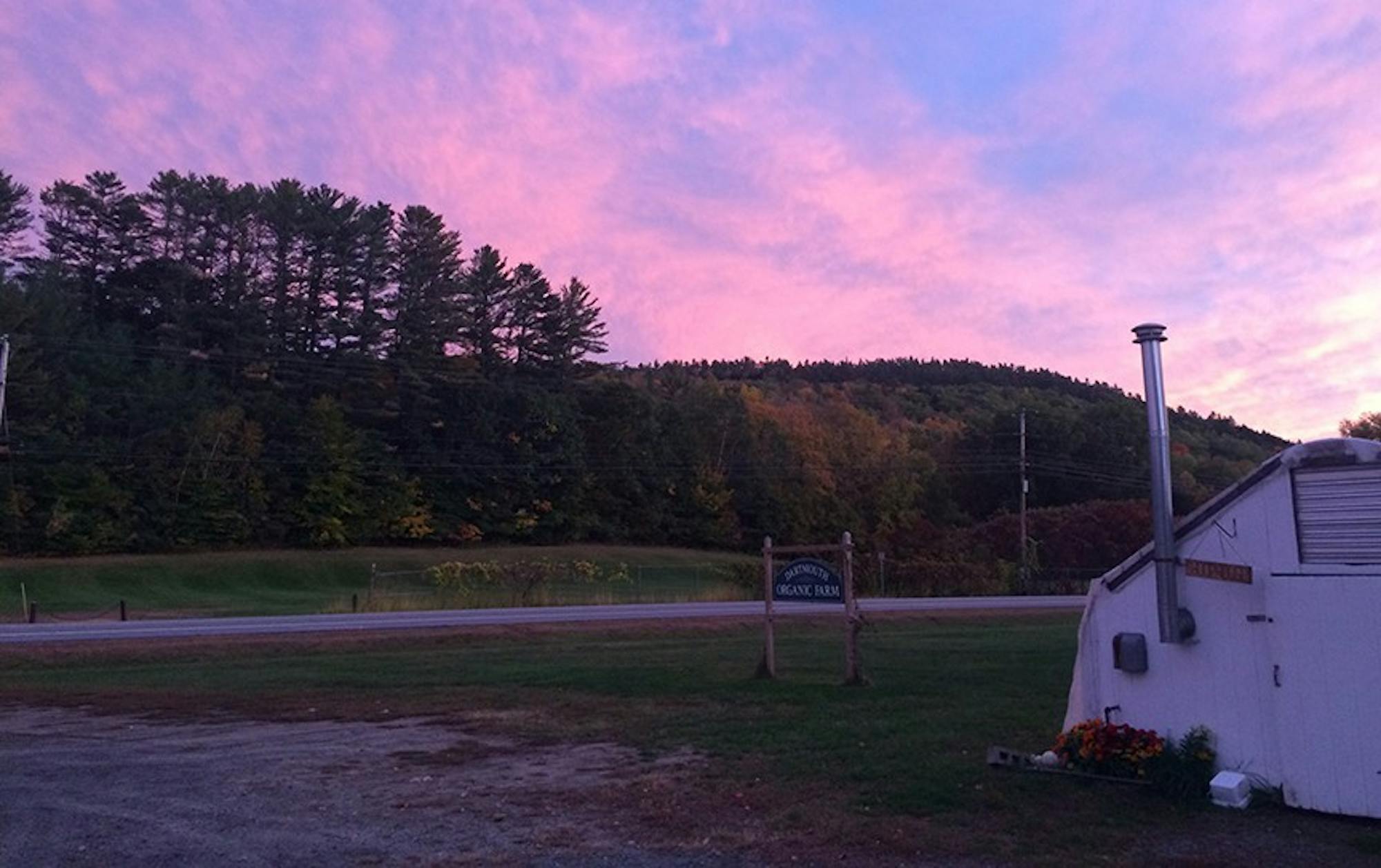This spring, an exciting new fruit has cropped up on the Dartmouth Organic Farm, as an apple orchard has been planted.
“We read a really good proverb in an apple orchard management book that said ‘the best time to plant an apple tree is 20 years ago, the second best time is today,’” Organic Farm club member Marshall Wilson ’17 said.
At the beginning of winter term, Wilson partnered with Ellyn Golden ’17 to plant a new apple orchard next to the Organic Farm, located three miles from the College, after applying for and receiving funding from a Dartmouth Outing Club Environmental Studies Division grant.
The new orchard includes 12 trees, paired into six different varieties: Crimson Topaz, Golden Russet, Sweet Sixteen, Wealthy, Zestar and Winecrisp apples.
According to Wilson, the apple trees were grafted onto preexisting tree roots, which allows the trees to grow to a manageable height while still producing fruit. This is the standard way of growing apple trees, Wilson said.
“Apples don’t breed true, meaning that planting a seed from Crimson Topaz apples generally won’t grow a tree that produces Crimson Topaz,” Wilson said.
He added that in the future, students might be able to graft trees themselves onto rootstock or plant more trees onto existing trees, which could allow one tree to produce multiple varieties of apples.
According to sustainability program manager Laura Carpenter, who oversees programming and operations at the Organic Farm, the reasoning behind such apple diversity lies in a desire to draw more students to the farm.
“There is such an heirloom variety of apples that we wanted to expose people to,” she said.
Wilson said that he and Golden wanted to grow a variety of apples to increase the apples’ utility, particularly for baking.
“We focused mainly on good apples for eating fresh but also made sure to get some good varieties for applesauce, baking and cider,” he said.
Other possibilities for the apples include student workshops and events, such as the annual HarFest, and if overproduction occurs, opening the orchard for student pickers.
“I’m hoping that it will open up another range of activities that we can hold at the farm, such as cider-making and baking,” Carpenter said. “We see the farm as a gateway to sustainability on campus.”
According to the Organic Farm website, the farm grows over 2,000 pounds of produce every season. Much of the food goes to Dartmouth Dining Services, the Upper Valley Community and on-site events for visitors.
Organic Farm intern Leah Valdes ’18 said that many club members are interested in food production, including maple syrup and mushroom-picking, so maintaining the apple orchard will be a welcome addition to the Organic Farm’s offerings.
“It’s definitely a really charismatic fruit,” she said. “It’s something that everyone eats and relates to, and it’s valuable to see how it grows.”
Valdes said the challenge will be to see how Golden and Wilson pass on their expertise to future members of the Organic Farm, since they are the most knowledgeable about apple orchards and their upkeep.
“The most work for [Golden] and me has been learning as much as possible about orchard management and putting all that information into a comprehensive management plan,” Wilson said.
Carpenter said the best part of the project for her was watching Golden and Wilson’s idea come to fruition before they graduate.
“I love the fact that you can follow an idea from the seed of the project to the end result,” she said.
Wilson and Golden are also optimistic about the future of the orchard and believe it will be easy for students to maintain it. They hope the orchard will provide students with a fun learning experience as well as elicit useful products.
“We’ve gotten so much out of the farm during our time here, so we knew we wanted to do something big to give back,” Wilson said. “We had both had the thought before of ‘I wish someone had planted an orchard here five years ago,’ so we decided we might as well be those people for students to come.”


